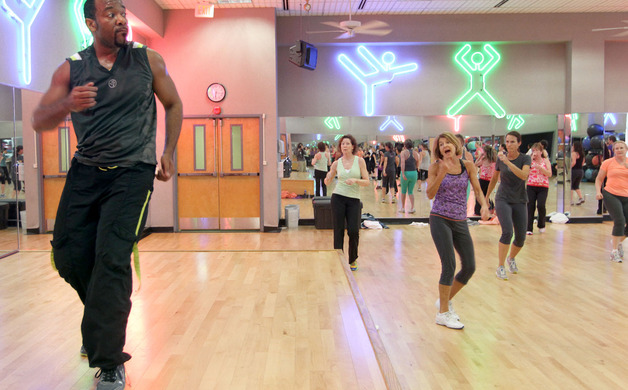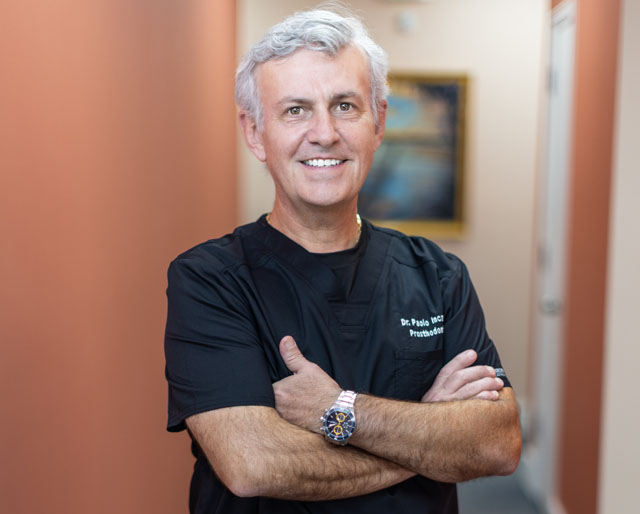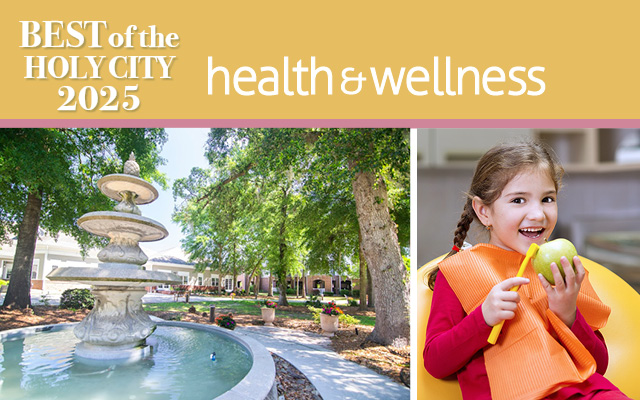How Healthy is Your Heart
27 Mar 2014
For February’s annual Heart Awareness Month, we talked with four cardiologists associated with each of the four Charleston area hospitals ― Roper Mount Pleasant, East Cooper Medical Center, Trident Medical Center and Medical University of South Carolina ― who shared some of the latest and greatest news in heart disease prevention and treatment.
By HARRIETT MCLEOD

The human heart is a pump that delivers oxygen throughout the body and to the tips of our fingers and toes, a pump that runs on electricity.
The human heart is also a muscle that needs to be exercised and benefits from exercise like any other muscle in the body.
Death from heart disease has been cut in half over the last 30 years “through better management of risk factors, more aggressive treatment of coronary disease and heart attacks when patients have them, and better treatment of heart failure,” said Dr. Michael Gold, chief of cardiology at the Medical University of South Carolina.
Major risk factors for heart disease are: family history, high blood pressure, high cholesterol, cigarette smoking and diabetes.
Doctors are quite aware of the power of those risk factors.
At the same time, they are figuring out new guidelines for cholesterol management written by the American Heart Association and the American College of Cardiology that could expand the number of Americans prescribed cholesterol-lowering statin drugs.
“Today, the emphasis that we take is to get people to eat healthier, eat fewer calories and learn to eat complex carbohydrates such as fresh vegetables rather than simple carbohydrates like refined sugars,” said Dr. John Ciccone, a Roper St. Francis physician partner with Mount Pleasant Cardiology.
“You can get a lot more bang for your buck from patients who follow a diet and exercise program and lose weight.”
Ciccone said he advises stopping smoking and doing regular resistance exercise, which also strengthens bones, to stay heart healthy.
Charleston’s mild climate makes year-round fitness possible.
“Where I live in Mount Pleasant, I see people walking and jogging and biking all the time,” Ciccone said.
Board certified in integrated holistic medicine, Ciccione said he also uses stress management techniques such as guided imagery, breathing exercises and music therapy with patients to treat the “bad” stress that is a negative factor for heart health.
Management of risk factors is important, said Dr. Kenneth Hanger of Lowcountry Cardiology Associates, who practices at East Cooper Medical Center and other facilities.
But “death rates from cardiac disease are going down because we’re pretty aggressive about treating it,” Hanger said. “There are still the same amount of heart attacks coming in. People get stented. They live longer.”
He is an interventional cardiologist. “I do all the fixes,” he said, such as placing life-saving stents into narrowed arteries.
Although men have more heart attacks than women, heart disease is the leading cause of death for women in the United States.
Symptoms of a heart attack are stealthy in women, Hanger said.
“Instead of chest pains, they might just not be feeling right. They might be fatigued, short of breath, something vague,” he said.
A triathlete, Hanger recommends 30 minutes of vigorous exercise five times a week for everyone.
“The more activity the better,” said Dr. Darren Sidney, an electrophysiologist at Trident Medical Center who treats heart rhythm disorders such as atrial fibrillation, an often unexplained irregular heartbeat.
The American Heart Association estimates some 2 1/2 million people nationwide have atrial fibrillation, which can lead to a stroke.
“If you have not exercised for a while, if you have not seen a doctor for a while, do something simple like get an electrocardiogram,” Sidney said.
Risk factors for atrial fibrillation include high blood pressure, diabetes and sleep apnea, a condition in which breathing repeatedly stops and starts during sleep, although not everyone with sleep apnea has an irregular heart rhythm, Sidney said.
“A lot of people discount their symptoms as they get older,” he said. “When I ask them if they have fatigue or shortness of breath, they say, ‘No, I’m just getting older, I can’t do everything I used to do.’ There may be some component to that but that might be a heart rhythm disorder. Atrial fibrillation causes people to feel wiped out.”
“People need to be more aware that we do offer treatments for this,” he said. “Twenty years ago, we didn’t. My goal is to get you able to do what you want to do, whether it’s an exercise program, walking around the mall, or traveling.”
At Medical University of South Carolina, a leading networking center for stroke and heart disease in South Carolina, the Department of Cardiology has about 30 research trials going on at any given time, said Gold, also an electrophysiologist.
MUSC is the only center in South Carolina that treats patients who have a genetic metabolism disorder that causes runaway cholesterol and blood pressure levels, by using an innovative new non-drug technique, he said.
The procedure, akin to dialysis, filters cholesterol out of the bloodstream every couple of weeks, he said.
MUSC is also studying patients with uncontrolled high blood pressure whose brains are sending signals to their arteries to narrow, Gold said.
“We’ve made so many advances that it’s harder to find newer medications, so there’s been a tremendous resurgence of innovative therapy,” Gold said. “Device-based therapies have become more and more common."
“Prevention’s the key, but also when someone has a heart attack, opening that artery immediately is critical,” he said. “It’s exciting times because there have been so many great advances in heart health and heart care.”
Women and Heart Disease
· Heart disease is the leading cause of death for women in the United States.
· Although heart disease is sometimes thought of as a "man's disease," around the same number of women and men die each year of heart disease in the United States. Despite increases in awareness over the past decade, only 54 percent of women recognize that heart disease is their number one killer.
· Heart disease is the leading cause of death for African American and white women in the United States. Among Hispanic women, heart disease and cancer cause roughly the same number of deaths each year. For American Indian or Alaska Native and Asian or Pacific Islander women, heart disease is second only to cancer.
Symptoms for Women
· While some women have no symptoms, others experience angina (dull, heavy to sharp chest pain or discomfort), pain in the neck/jaw/throat or pain in the upper abdomen or back. These may occur during rest, begin during physical activity, or be triggered by mental stress.
· Women are more likely to describe chest pain that is sharp, burning and more frequently have pain in the neck, jaw, throat, abdomen or back.
· Sometimes heart disease may be silent and not diagnosed until a woman experiences signs or symptoms of a heart attack, heart failure, an arrhythmia, or stroke.
Risk Factors for Heart Disease
High blood pressure, high LDL cholesterol, and smoking are key risk factors for heart disease. About half of Americans have at least one of these three risk factors. Several other medical conditions and lifestyle choices can also put people at a higher risk for heart disease, including:
· Diabetes
· Overweight and obesity
· Poor diet
· Physical inactivity
· Excessive alcohol use
Screening
To reduce your chances of getting heart disease:
· Know your blood pressure. Having uncontrolled blood pressure can result in heart disease. High blood pressure has no symptoms, so it’s important to have your blood pressure checked regularly.
· Talk to your healthcare provider about whether you should be tested for diabetes. Having uncontrolled diabetes raises your chances of heart disease.
· Quit smoking.
· Discuss checking your cholesterol and triglycerides with your healthcare provider.
· Make healthy food choices. Being overweight and obese raises your risk of heart disease.
· Limit alcohol intake to one drink a day.
· Lower your stress level and find healthy ways to cope with stress.
Source: Centers for Disease Control
Heart Health Events
Jan. 25
Roper St. Francis Families for a Healthy Heart Health Fair & Kick-off Event
Free health screenings, 8 a.m.-11 a.m., Metro North Church, 109 Central Ave., Goose Creek. Free. Screenings include: blood pressure, glucose/cholesterol and more (3-4 hours fasting suggested). First come, first serve. Seating is limited and registration is required for all classes. To register, call 402-2273. The program teaches easy ways to be healthy and active. This is a great program for churches and schools to join, and is led by a registered dietitian, certified diabetes educator and certified advanced personal trainer. Classes run through April.
Feb. 1
MUSC Heart & Vascular Center's Annual Go Red Heart 4K Run and Walk
9 a.m., Charleston Harbor Resort and Marina Pavilion, 20 Patriots Point Blvd., Mount Pleasant. Race fees: $30 through Jan. 10; $35 through Jan. 31; $40 day of race. muschealth.com/goredrun
Feb. 6
Women's Heart Health Night
5-7 p.m., Trident Medical Center, 9330 Medical Plaza Drive, Charleston. Free, includes dinner. Register: 797-3463.
Feb. 20
The Heart of the Matter: The Importance of Women’s Heart Health
Roper St. Francis Mount Pleasant Hospital, Medical Office Building, Classrooms 1 & 2, 5:30-6:30 p.m. Presented by Dr. Valerie Scott, Mount Pleasant Family Practice. Heart disease is the number one killer of women in the United States. Join Dr. Scott and learn about risk factors, warning signs and ways to care for your heart.
Feb. 20
Heart Health Screenings
8 a.m.-12, Trident Medical Center, 9330 Medical Plaza Drive, Charleston. Café A and B. Free. 797-3463.
Feb. 27
Heart Healthy Conversations
6-7 p.m., Trident Medical Center, 9330 Medical Plaza Drive, Charleston. Café A and B. Speaker: Dr. James Benner. Free, includes dinner. Register: 797-3463












